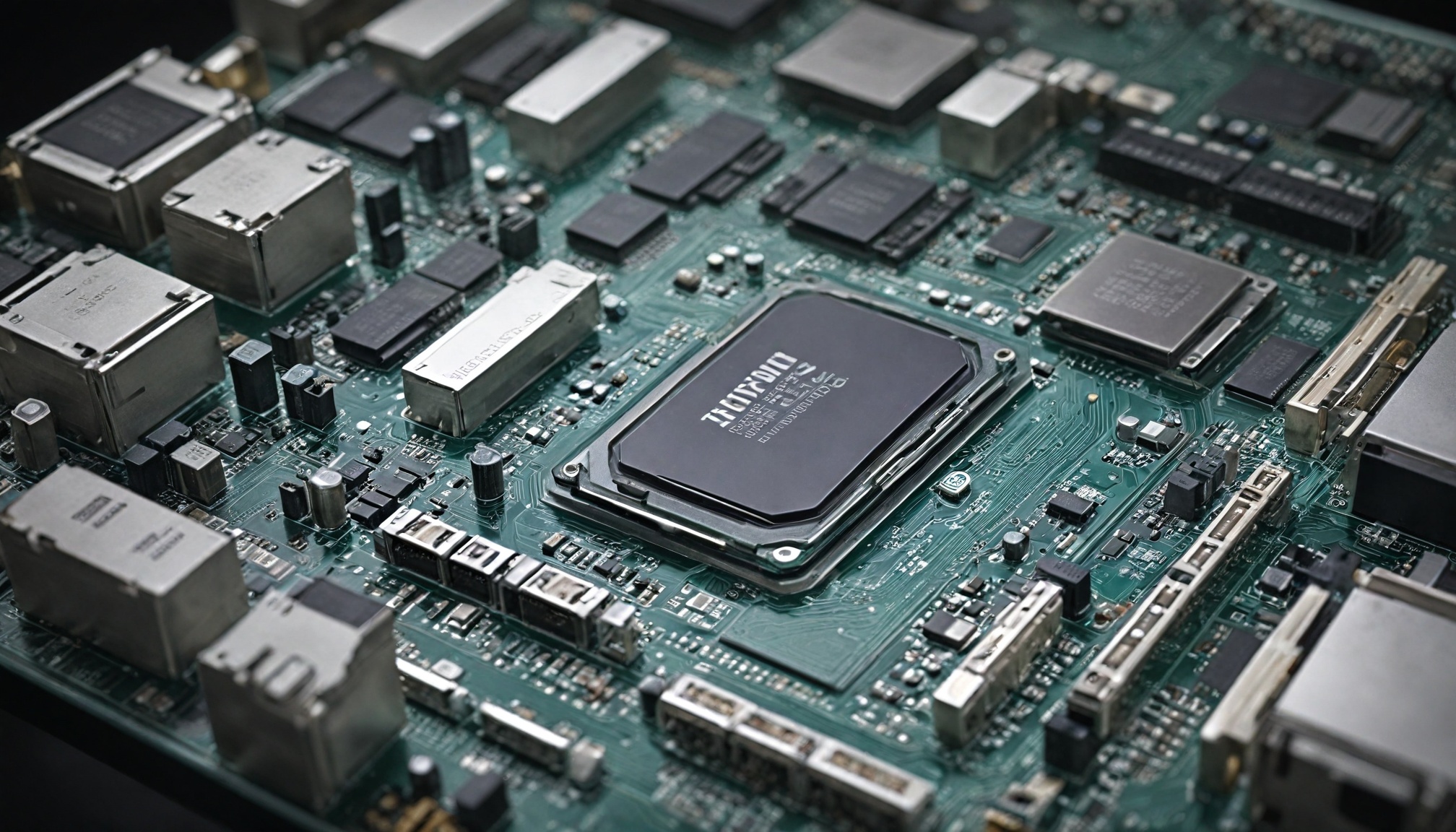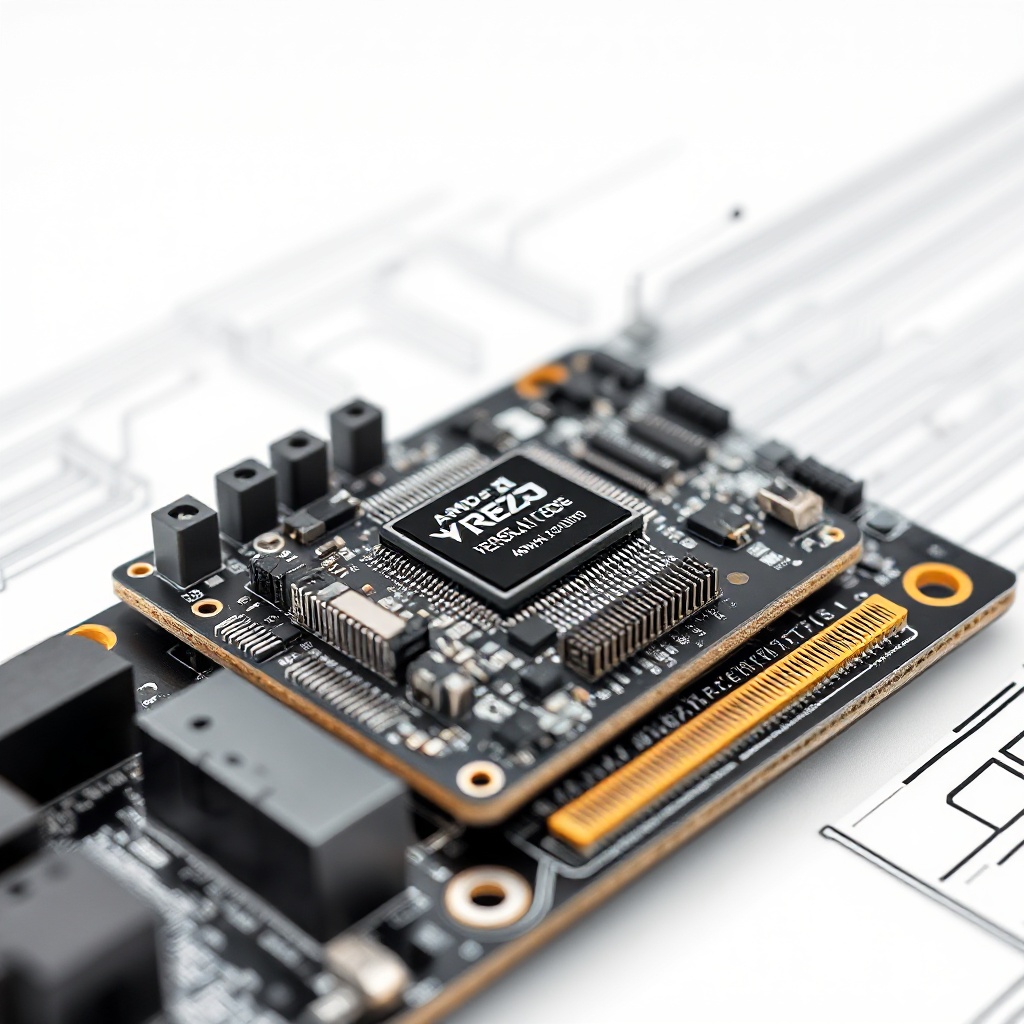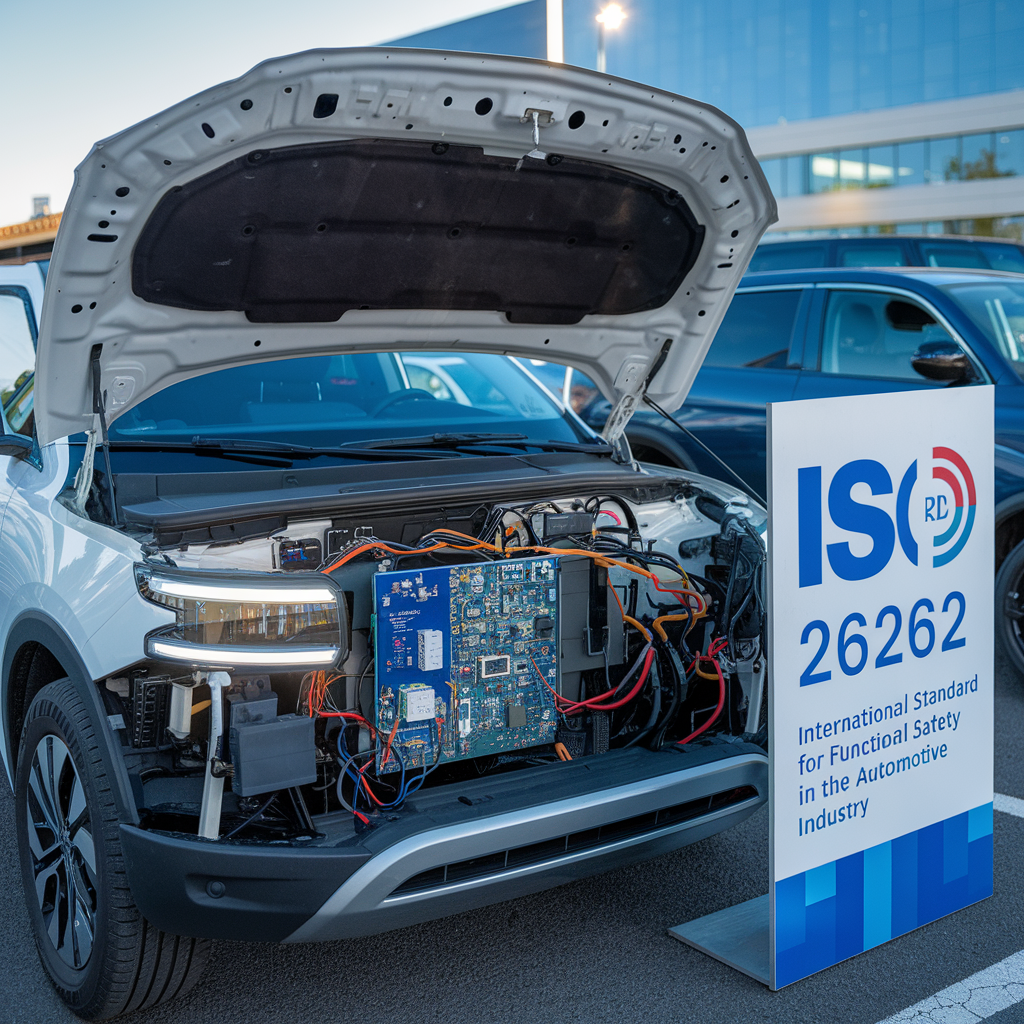
Compact AMD Versal AI Edge SoMs deliver 369 TOPS in tiny form factors, enabling real-time edge AI for industrial, automotive, and medical applications.

Drivetech Partners
Trenz Electronic's Versal AI Edge System-on-Modules (SoMs) are transforming edge computing by packing AMD's Versal Gen 2 adaptive SoC technology into compact, high-performance hardware that delivers unprecedented AI capabilities at the edge. These German-engineered modules combine powerful heterogeneous computing architecture with extensive connectivity options to enable real-time AI inference, sensor fusion, and deterministic control in size and power-constrained embedded applications.
Key Takeaways
Compact form factor (40mm x 56.4mm) with expansive computing capabilities delivers industrial-grade performance in space-constrained applications
Enhanced AI Engine architecture provides up to 369 INT8 TOPS and 3x improvement in TOPS/Watt compared to previous generations
Heterogeneous computing combines Arm Cortex processors, programmable logic, and dedicated AI acceleration for versatile workload handling
Modular design approach with carrier boards simplifies integration into diverse industrial, automotive, and medical embedded systems
Built-in security features and ASIL D certification make these modules ideal for safety-critical applications in autonomous vehicles and medical devices

AMD Versal Gen 2 Architecture: The Powerhouse Behind Edge AI Evolution
At the heart of Trenz Electronic's SoMs lies AMD's revolutionary Versal Gen 2 adaptive SoC architecture. This cutting-edge platform combines multiple processing elements in a single chip, creating a powerhouse for edge AI applications. The architecture features up to 8x Arm Cortex-A78AE application processors and 10x Cortex-R52 real-time processors, delivering exceptional general-purpose and real-time computing capabilities.
The enhanced AI Engine (AIE-ML v2) represents a major leap forward with 2X compute per tile versus previous generations, resulting in up to 3x TOPS/Watt improvement. This translates to peak AI compute reaching an impressive 369 INT8 TOPS (with Max Sparsity) in models like 2VE3804 and 2VE3858, putting desktop-class AI performance in a tiny package.
Memory bandwidth often bottlenecks AI applications, but these modules address this challenge head-on with high-bandwidth memory controllers supporting LPDDR5X up to 8533 Mb/s and delivering maximum bandwidth of 170 GB/s. This ensures AI models can access data quickly for responsive inference at the edge.
Connectivity isn't an afterthought, with integrated PCIe Gen5x4, USB 3.2, DisplayPort 1.4, 10G Ethernet, and CAN-FD interfaces providing extensive options for peripherals and networking. For mission-critical applications, built-in security and functional safety features including ASIL D / SIL 3 certification ensure reliable operation even in demanding environments.
Hardware Specifications: Compact Form Factor with Expansive Capabilities
Trenz Electronic's SoMs pack impressive technical specifications into their compact 40mm x 56.4mm form factor. The modules feature AMD Versal AI Edge XCVE2302 devices, with specific model offerings like the TE0955-01-EGBE32-A providing a perfect balance of performance and power efficiency.
Memory configurations are generous and versatile, including 8GB LPDDR4 SDRAM, 256MB OSPI Flash, and up to 32GB eMMC for program and data storage. These memory options support complex AI models and real-time processing tasks while maintaining the compact form factor.
High-speed connectivity is a standout feature, with USB2.0 PHY, Gigabit Ethernet PHY, and up to 8 GTYP transceivers providing flexible options for data transfer and peripheral connection. The complementary TE0950 series carrier boards extend these capabilities with up to 8GB DDR4 SDRAM and modular high-speed connectors for custom interfaces.
For harsh operating conditions, these modules offer an industrial-grade temperature range (0°C to +85°C), making them suitable for demanding factory floor, automotive, and outdoor applications. Pricing starts at approximately US$1,225 per module and drops below US$900 for high-volume orders, making these powerful computing platforms accessible for production deployments.
Real-Time Edge AI Performance: Transforming Complex Workloads
The true value of these SoMs lies in their ability to handle complex real-time edge AI workloads with unprecedented efficiency. AI inference acceleration delivers up to 3X performance/watt compared to previous generations, enabling more sophisticated models to run within tight power budgets.
Support for sparse ML models is particularly valuable for edge applications, allowing for efficient computation and low latency response times. This capability is essential for time-sensitive applications like autonomous vehicles, industrial safety systems, and medical monitoring devices where delays can have serious consequences.
Real-time sensor fusion capabilities allow these modules to aggregate multiple data streams for immediate inference, enabling smarter decision-making based on comprehensive input from diverse sensors. Deterministic control through high-performance real-time cores and programmable logic ensures predictable response times for critical control applications.
The modules provide extensive connectivity options (CAN-FD, Ethernet, USB, MIPI) to facilitate flexible deployment in various embedded scenarios. With up to 200k DMIPs of compute power, they can handle complex, multi-stage AI processing pipelines while maintaining real-time performance constraints.

Industrial Applications: Advancing Automation and Control Systems
In industrial settings, Versal AI Edge SoMs are enabling a new generation of intelligent automation systems. These modules power advanced machine vision systems with real-time object detection and classification capabilities that enhance quality control and workflow optimization.
Industrial robotics benefit from accelerated sensor processing and low-latency control paths, allowing for more precise and responsive movements in complex manufacturing environments. The ability to process multiple sensor streams with AI inference also facilitates predictive maintenance applications, helping to identify potential equipment failures before they cause downtime.
Quality inspection systems leverage the high-resolution image processing capabilities to detect subtle defects that might be missed by conventional systems or human inspectors. Industrial IoT gateways can use both the high-performance processors and programmable logic to aggregate and process data from numerous sensors and control points.
The modules' support for time-sensitive networking allows integration with smart factory infrastructure, ensuring deterministic communication for critical control systems. The result is enhanced productivity and improved diagnostics through hardware-accelerated AI at the edge, reducing dependency on cloud connectivity and enabling faster response times.
Automotive Solutions: Driving Next-Generation Mobility Systems
The automotive sector presents some of the most demanding computing challenges, which these SoMs are well-equipped to handle. They support ADAS and autonomous driving with multi-sensor perception capabilities, processing inputs from cameras, radar, lidar, and other vehicle sensors to create a comprehensive view of the vehicle's surroundings.
Meeting ASIL D functional safety requirements for critical automotive applications ensures these modules can be deployed in systems where reliability is non-negotiable. The real-time sensor fusion capabilities enable immediate decision-making for collision avoidance and other safety-critical functions.
In-vehicle infotainment and driver monitoring systems benefit from AI acceleration, providing more natural user interfaces and enhanced safety features. V2X communication systems leverage the high-speed connectivity options to enable vehicle-to-everything communications for improved traffic management and safety.
Low-latency control is essential for drive-by-wire and electronic control units, where delays can affect vehicle handling and safety. These modules support the development of autonomous driving platforms with complex decision-making algorithms that can operate reliably in unpredictable real-world conditions.
Medical Imaging and Healthcare Innovation
In healthcare applications, Versal AI Edge SoMs enable significant advances in medical technology. Real-time medical imaging with hardware-accelerated image processing allows for faster and more detailed scans, improving diagnostic capabilities while potentially reducing radiation exposure.
AI diagnostics acceleration supports faster patient assessment and treatment planning, helping healthcare providers make more informed decisions quickly. Multi-modal sensor integration enables advanced healthcare monitoring systems that can track multiple vital signs simultaneously and identify concerning patterns.
The compact form factor supports development of portable, high-performance medical devices that can bring advanced diagnostics to remote locations or patient bedsides. Built-in security features protect sensitive healthcare data processed at the edge, addressing privacy concerns without requiring constant cloud connectivity.
Low-power operation extends battery life for mobile medical equipment, increasing usefulness in emergency situations or areas with unreliable power. High-bandwidth memory systems support large medical imaging datasets, enabling detailed analysis without the need to transfer massive files to centralized servers.
Development Ecosystem: Streamlined Design and Deployment
Creating solutions with these advanced SoMs is made accessible through a comprehensive development ecosystem. The modules are supported by AMD's Vivado Design Suite for hardware design optimization, allowing engineers to configure the programmable logic to their exact requirements.
The Vitis unified software platform enables AI and DSP acceleration in familiar programming languages like C/C++ and Python, making advanced hardware acceleration accessible to software developers. Domain-specific IP libraries and reference designs accelerate time-to-market by providing pre-validated building blocks for common functions.
Hardware/software co-design workflow simplifies complex system integration, allowing teams to optimize the partitioning of functionality between the various processing elements. Pre-verified reference designs for common edge AI applications provide starting points that can be customized to specific requirements.
The scalable development approach supports the entire journey from prototyping to production deployment, with tools appropriate for each stage. Comprehensive documentation and community support resources help developers overcome challenges, while design flow wizards reduce complexity for those new to adaptive computing platforms.
Sources:
trenz-electronic.de - AMD Versal AI Edge SoM with VE2302 device 4 x 5.64 cm/TE0955-01-EGBE32-A





